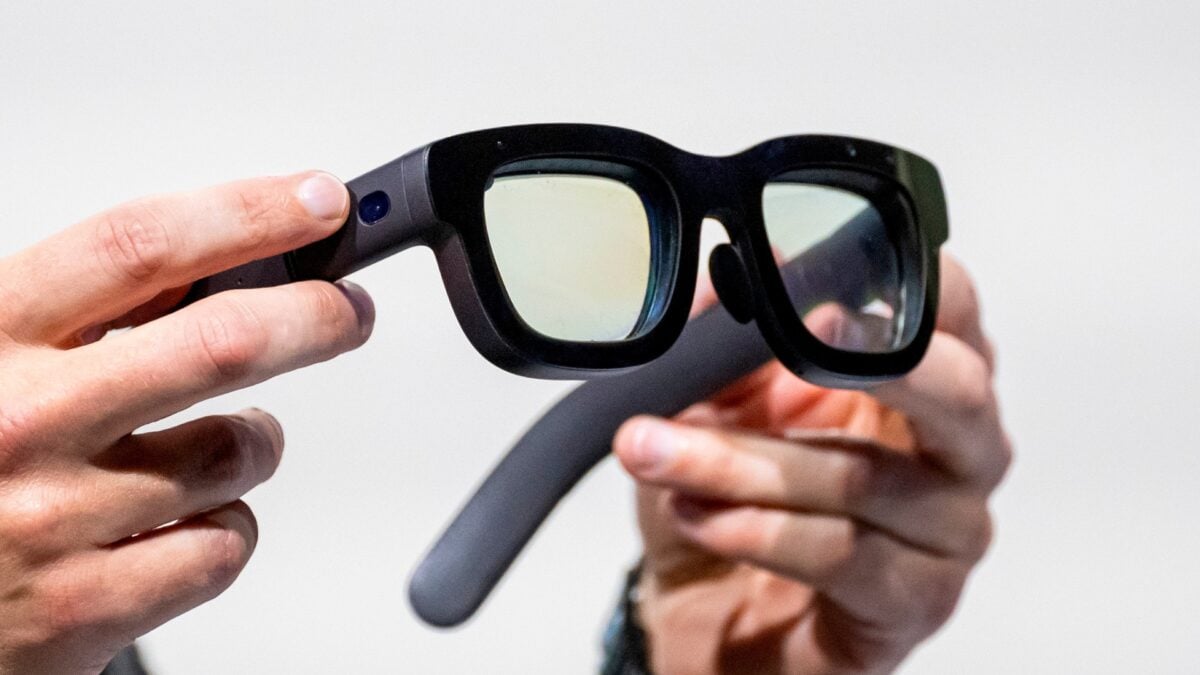Meta Wants to Make Its First AR Glasses With a Display as Cheap as a Flagship Phone

If there’s one thing that we’ve learned in the world of mixed reality over the past year, it’s that price is pretty much everything. Just ask Apple, which is still struggling to find an audience for its $3,500 Vision Pro headset. I mean, it’s not that there’s not a lot to love about the Vision Pro (the best UI in mixed reality and a premium display are particular highlights), but I bought my first used car for a price that wasn’t too far off, and that at least got me to work semi-on time.
It’s unclear what, if anything, Apple learned from its experiment in expensive AR hardware since there’s no second-gen Vision Pro just yet, but Meta seems to have gotten the message, and not just with its newest headset, the Quest 3S, but apparently with an upcoming pair of smart glasses. According to a report from Bloomberg’s Mark Gurman, Meta is planning to release its next pair of display-having smart glasses soon for $800, which is markedly less than the previous rumors that suggested a price of $1,000 or as much as $1,400. In other words, Meta seems to be taking a page from the Quest playbook, which is decidedly better for consumers.
Don’t get me wrong, $800 is still a sizeable amount of money for most people, but it’s not as bad when you consider new flagship phones. Samsung’s Galaxy S25, Nothing’s Phone 3, and Google’s Pixel 9 all debuted at the same price, and as important as phones are, they don’t often differ wildly between generations unless you wait three to five years. For someone who’s interested in the smart glasses category and has some disposable income, $800 might just be enough to justify pulling the trigger. And sure, Meta’s smart glasses (codenamed Hypernova, and not to be confused with its AR prototype Orion) won’t have full phone-like ability, but according to Gurman, they will have one thing that people have been begging for in a pair of Meta-made specs: a screen.
With that screen (a single monocular display), Hypernova is said to have a much bigger bag of tricks compared to Meta’s Ray-Bans, the only pair of smart glasses it currently offers commercially. For one, Hypernova will reportedly have the ability to use “mini-apps,” as Gurman puts it, which could mean any number of things, including (I hope) navigation and messaging. To control those apps, Gurman says Meta plans to ship the glasses with a body-sensing wristband that takes inputs from hand movements and would be a novel move in the world of smart glasses. The Orion prototype used an electromyography (EMG) wristband controller; leaked images for Hypernova suggest the smart glasses will have its own wrist-worn device.
Meta Hypernova and Ceres Wristband (low res) pic.twitter.com/N1QS28A5ef
— Luna (@Lunayian) June 30, 2025
On top of that, a screen would also give Meta’s Hypernova glasses the ability to display notifications, which is something that current-gen Ray-Bans are sorely lacking. And with the retention of a voice assistant, solid audio, and a camera for pictures and video, Hypernova could add up to something that comes damn-near close to being a phone replacement in some ways, or at least a capable fill-in. That brings me back to the price.
As important as phones are, I think most people would agree that skipping a generation (or two or three) isn’t really going to be a big deal, and if people are presented with the opportunity to forego the next flagship phone in favor of a pair of smart glasses that actually expands their gadget wheelhouse and gives them lots of the same features in a different, useful, and maybe even exciting package, then I’m willing to wager some will take it. Whether Hypernova will actually be any of those things remains to be seen, but at least Meta seems to be giving a decent number of people that chance to find out come September, when it’s expected to unveil the glasses at its annual Connect conference.



- CỘNG ĐỒNG
- News
- Tech
- Food
- Causes
- Personal
- Art
- Crafts
- Dance
- Drinks
- Film
- Fitness
- Игры
- Gardening
- Health
- Главная
- Literature
- Science
- Networking
- Party
- Religion
- Fashion
- Sports
- Звезды
- Xã Hội


